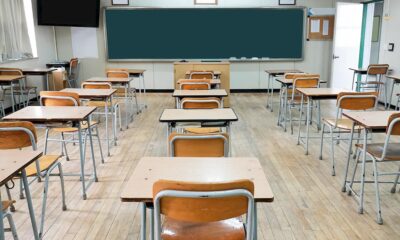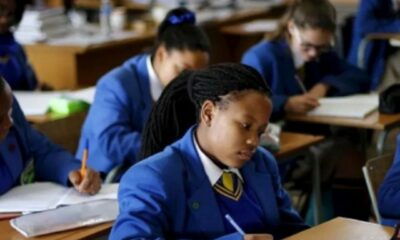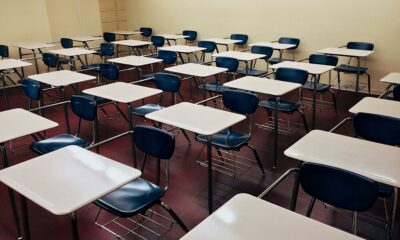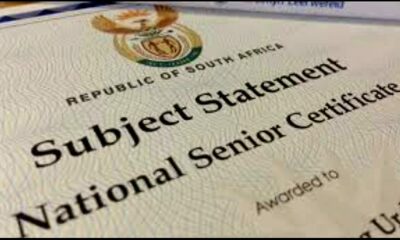411
Crisis in the Classroom: Hundreds of South African Schools Drop Mathematics

South Africa’s education system is facing a quiet crisis—one that could have long-lasting effects on the country’s future workforce and economic competitiveness. The Department of Basic Education (DBE) recently revealed that 464 public schools across the country are not offering Mathematics as a subject to learners.
This figure is alarming for a country already lagging behind global benchmarks in maths and science education. The implications are not just academic—they are economic, social, and deeply personal for thousands of students.
Where is Mathematics Disappearing?
The breakdown by province shows that KwaZulu-Natal is the most affected, with 135 schools not offering Mathematics. The Eastern Cape follows with 84 schools, Limpopo with 78, and the Western Cape with 61. Even provinces with stronger infrastructure like Gauteng and the North West each have 31 schools without the subject.
The DBE attributes this to several factors, including:
-
A lack of demand from students
-
A shortage of qualified Mathematics teachers
-
Budget constraints
-
Timetable limitations
-
Difficulty in sustaining a full Maths class
These challenges are most keenly felt in under-resourced schools where offering both Mathematics and Mathematical Literacy becomes unviable.
Why It Matters
Mathematics is not just another school subject—it’s a gateway to critical careers in engineering, technology, health sciences, finance, and more. Minister of Basic Education Siviwe Gwarube has warned that the decline in Mathematics participation is threatening South Africa’s ability to compete in science, innovation, and economic development.
Since 2011, the percentage of matric learners opting for Mathematics has dropped from 46% to just 34% in 2023. This trend continued into 2024, with only 255,762 learners registering for the subject—down from 268,100 the previous year.
Even more concerning, only a small fraction of these learners are achieving the 60% pass mark needed to pursue university-level STEM qualifications.
How Did We Get Here?
Gwarube and other experts have pointed to long-standing foundational gaps in education. Many learners enter high school already struggling with basic numeracy, making it difficult for them to succeed in more advanced maths.
This was highlighted by the 2023 Trends in International Mathematics and Science Study (TIMSS), where South Africa ranked last out of 59 countries. Alarmingly, South Africa tested Grade 5 and 9 learners in place of the international Grade 4 and 8 benchmarks—yet still came in last.
This decision was reportedly made to better align with the local curriculum, but it also hints at how far behind South African learners are compared to their global peers.
What’s Being Done?
The Department of Basic Education insists that Mathematics remains a high priority. Regular meetings with provincial departments are underway, aimed at sharing best practices and increasing enrolment.
There are also efforts to improve teacher capacity, provide professional development, and promote more effective teaching methods.
However, reversing this trend will take time—and urgent action.
What Needs to Change
If South Africa is serious about developing a skilled, tech-savvy workforce, then restoring Mathematics education must be a national imperative. This means:
-
Training and retaining more qualified maths teachers
-
Providing schools with the resources they need to offer Maths
-
Creating incentives for learners to choose the subject
-
Strengthening foundational maths skills in earlier grades
South Africa cannot afford to let hundreds of schools go without Mathematics. The future of the economy—and the dreams of thousands of learners—depend on it.
{Source: BusinessTech}
Follow Joburg ETC on Facebook, Twitter , TikTok and Instagram
For more News in Johannesburg, visit joburgetc.com



























